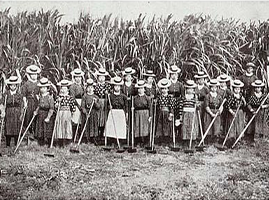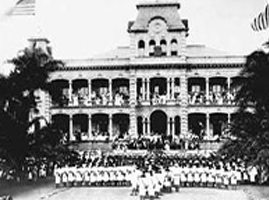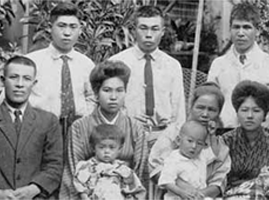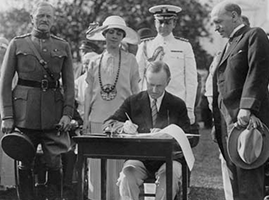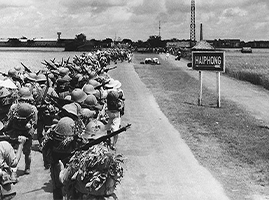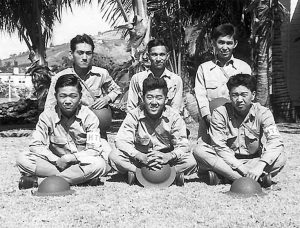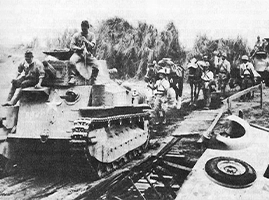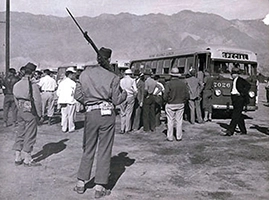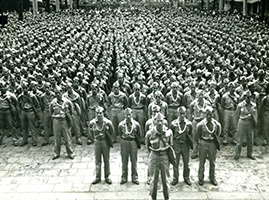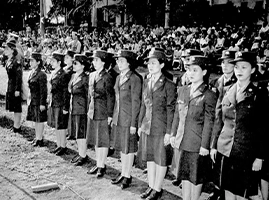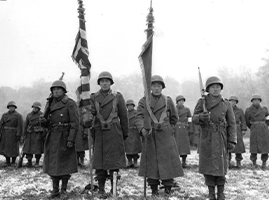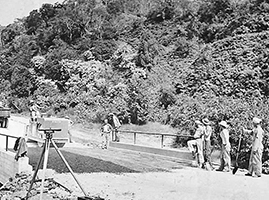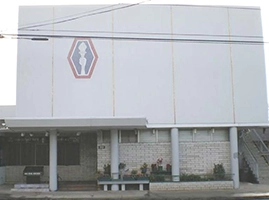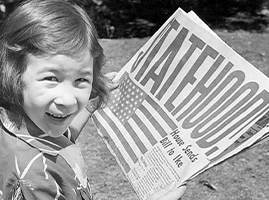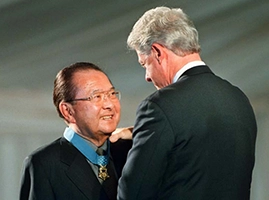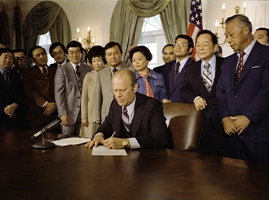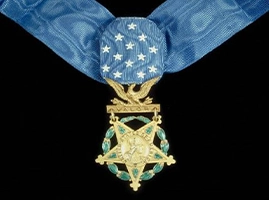As World War II raged across Europe and Asia, U.S. President Franklin D. Roosevelt proposed meetings with leaders of key Allied powers to establish a unified strategy.
“The Cairo and Teheran conferences, however, gave me my first opportunity to meet the Generalissimo, Chiang Kai-shek, and Marshal Stalin, and to sit down at the table with these unconquerable men and talk with them face to face.” — President Franklin D. Roosevelt’s Fireside Chat on December 24, 1943
At the first Cairo Conference, held November 22–26, 1943, in Cairo, Egypt, Roosevelt met with China’s President Chiang Kai-shek and Britain’s Prime Minister Winston Churchill to outline the Allied position against Japan and plan for a postwar Asia.
The countries agreed that territories taken from China by Japan, including Manchuria, Taiwan and the Pescadores, would be returned to the Republic of China after the war. In exchange, Chiang agreed not to expand across the continent or control decolonizing nations. Roosevelt had been concerned that China might pull away from Allied efforts and fall to the Japanese, and thus wanted to solidify China’s commitment.
In the Cairo Declaration, jointly released by the United States, Republic of China and Great Britain on December 1, 1943, the countries vowed to continue fighting Japan and to strip Japan of all the territories it had conquered since 1914, including Chinese territories and Korea.
After the first Cairo Conference, Churchill and Roosevelt headed to Iran for the Tehran Conference with Joseph Stalin, Premier of the Soviet Union. The three leaders agreed to meet on November 28, 1943, to discuss D-Day war strategy and how to defeat Japan.
Although the three leaders had different objectives, the main thing they agreed upon was opening a second front against Germany. This would come to fruition as Operation Overlord, the Allied invasion of Normandy in June 1944.
All three leaders reaffirmed that only unconditional surrender would be accepted from the Axis countries. They also agreed to respect the independence of Iran and to support Turkey if it was attacked by Axis troops.
At the end of the Tehran Conference on December 1, 1943, Roosevelt and Churchill returned to Cairo for the second Cairo Conference, on December 2–7, 1943. They unsuccessfully tried to persuade Turkey’s President İsmet İnönü to join the Allies in the war. Roosevelt also told Churchill that General Dwight D. Eisenhower would become supreme commander of the Normandy Invasion.

Chiang Kai-shek, Roosevelt, and Churchill at the Cairo Conference

Stalin, Roosevelt, and Churchill at the Tehran Conference
The Cairo Conference (1943)
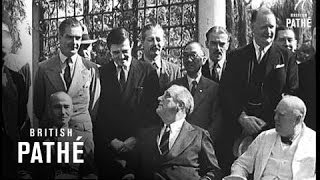
Events (Nov 1943)
Chiang Kai-shek, Franklin D. Roosevelt and Winston Churchill meet and agree on a position against Japan and postwar Asia.
Joseph Stalin, Franklin D. Roosevelt and Winston Churchill meet and agree on Operation Overlord, the Allied invasion of Normandy that would occur in June 1944.
PHOTOS COURTESY OF:
Library of Congress
U. S. National Archives and Records Administration
U. S. National Archives and Records Administration
Library of Congress


